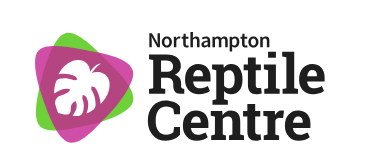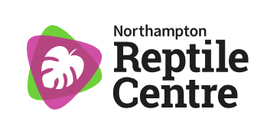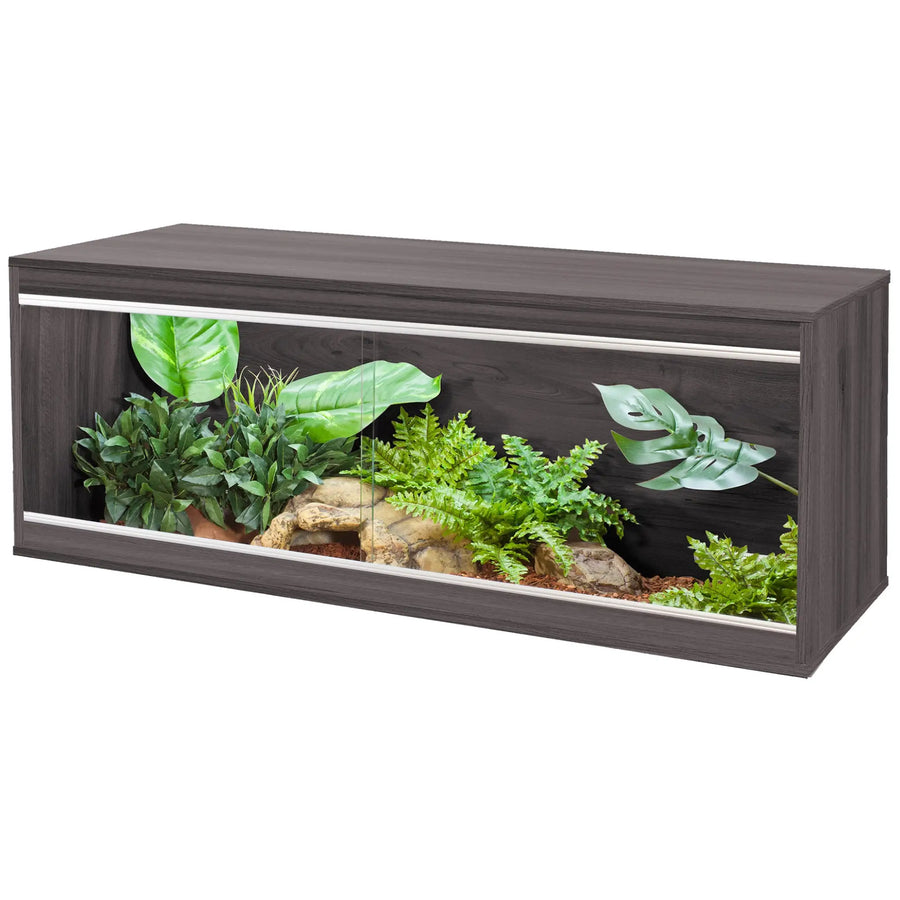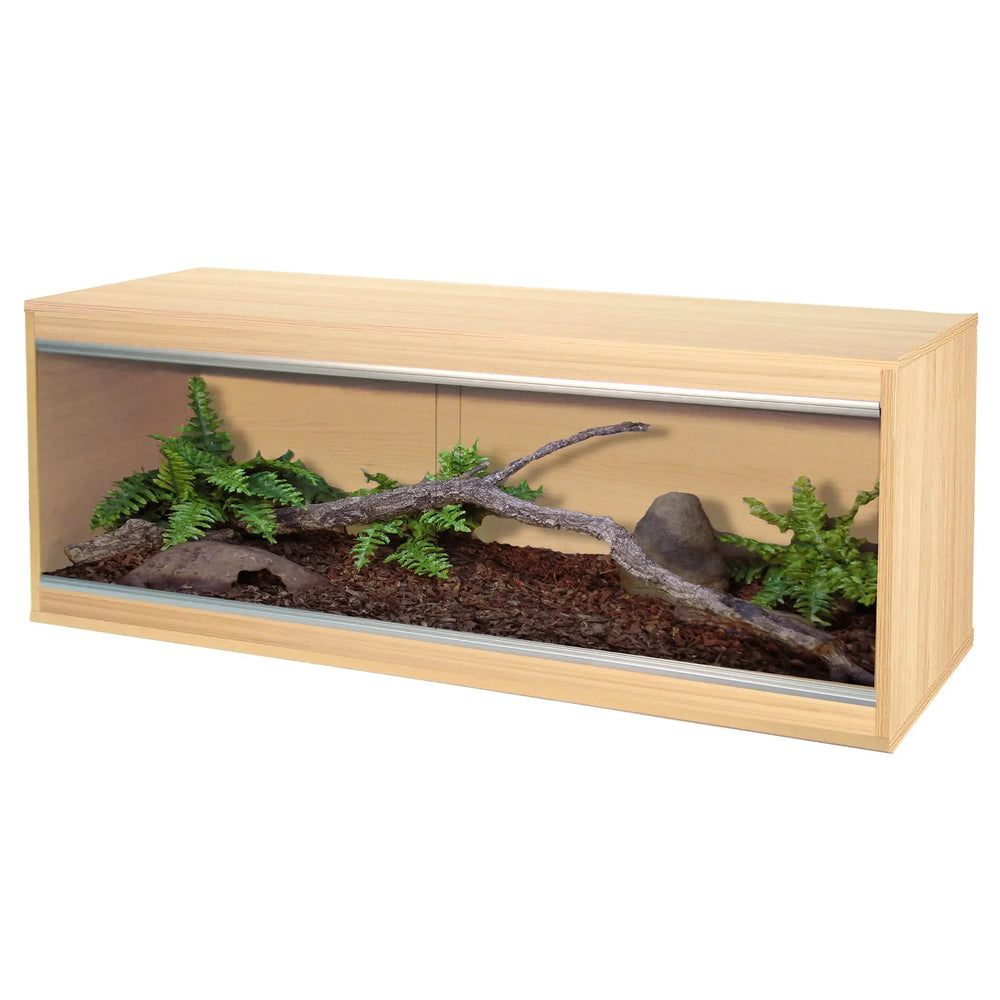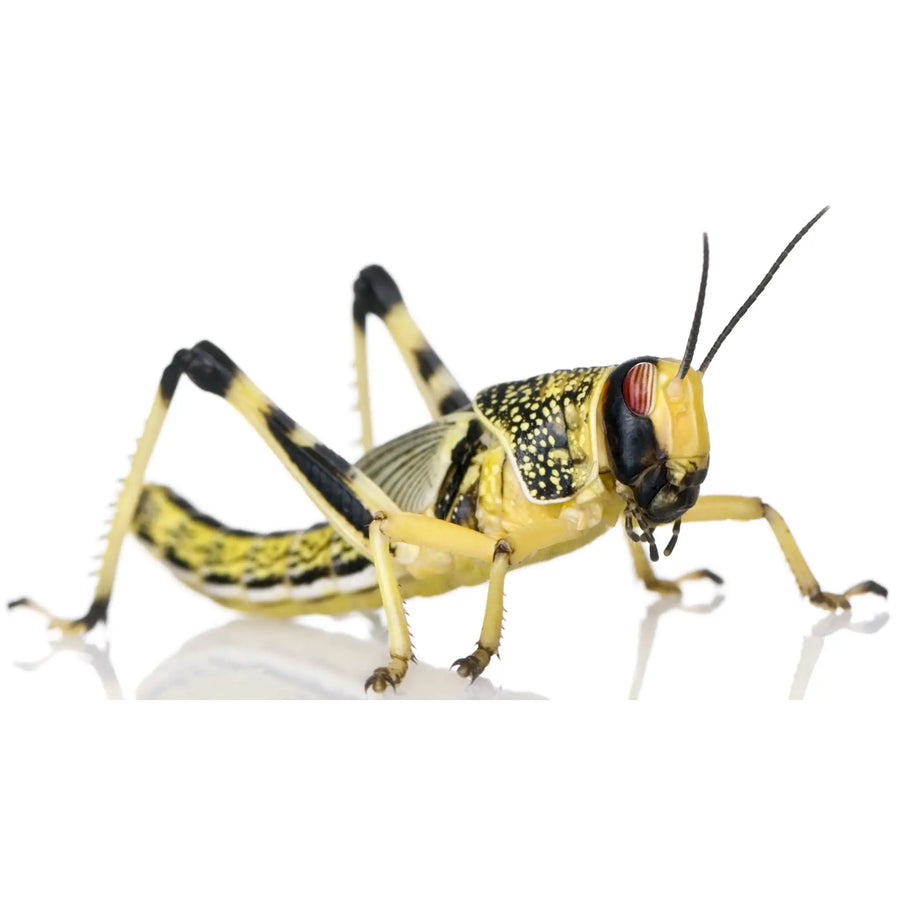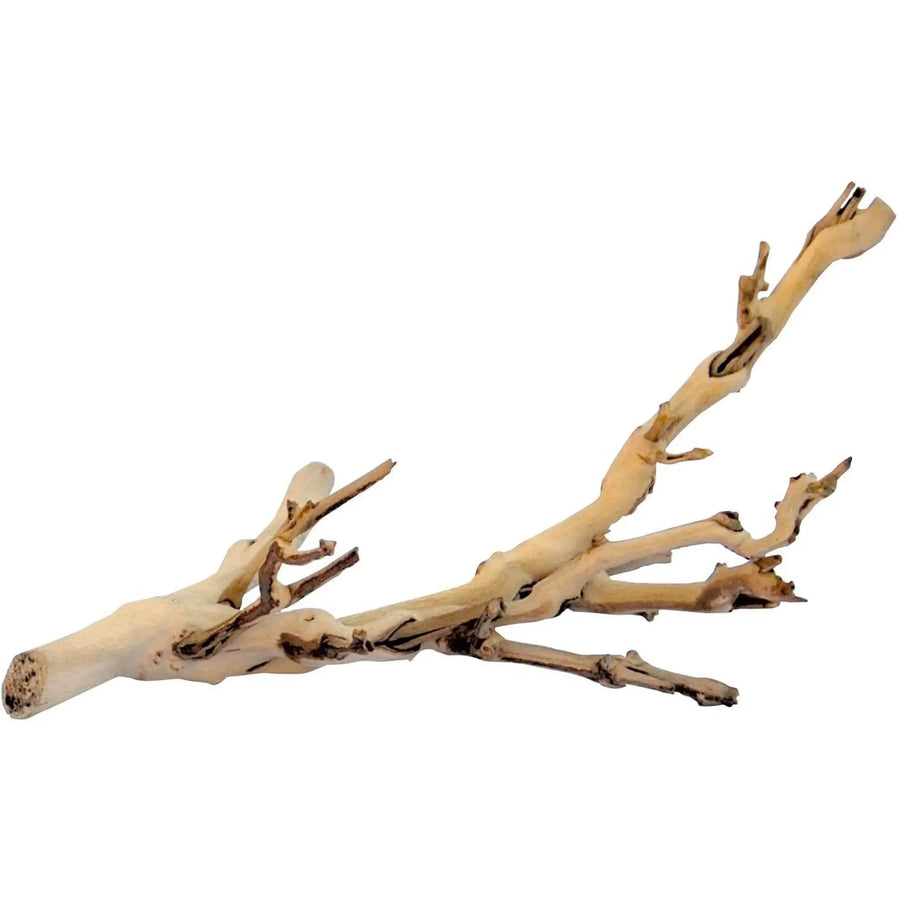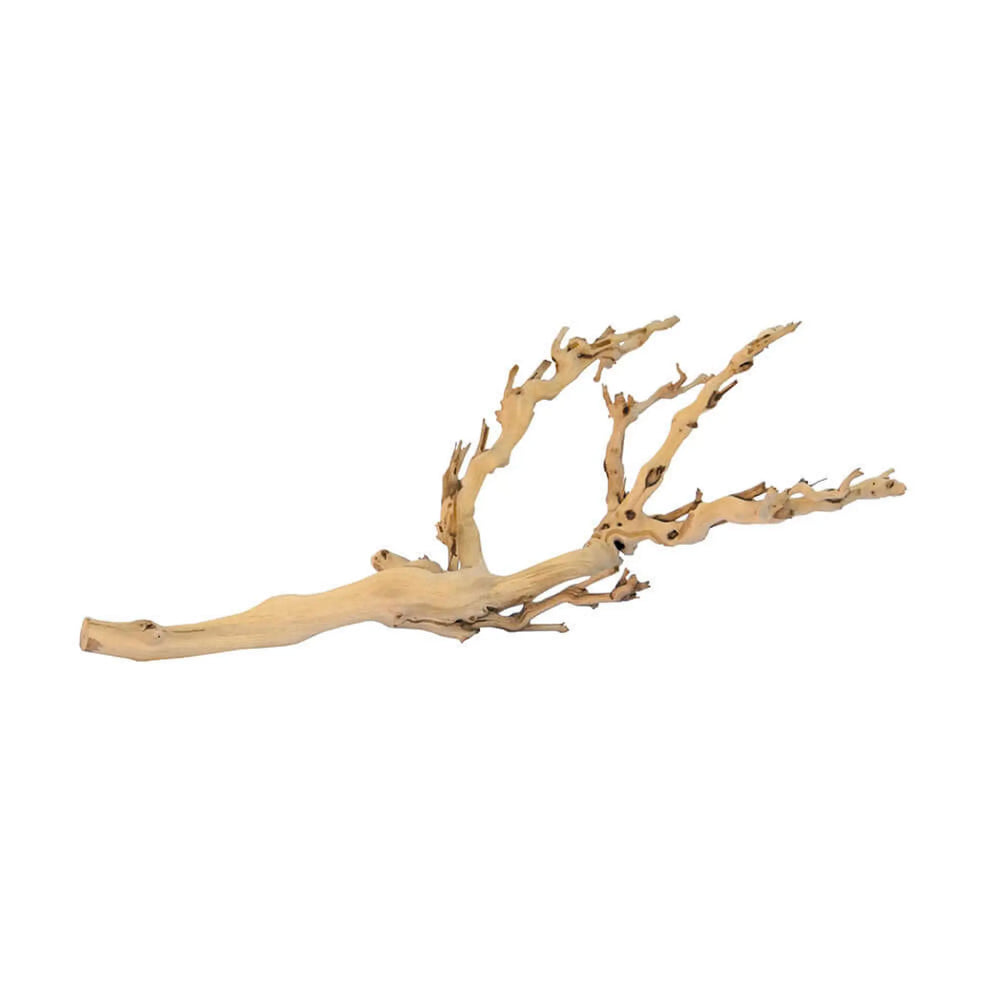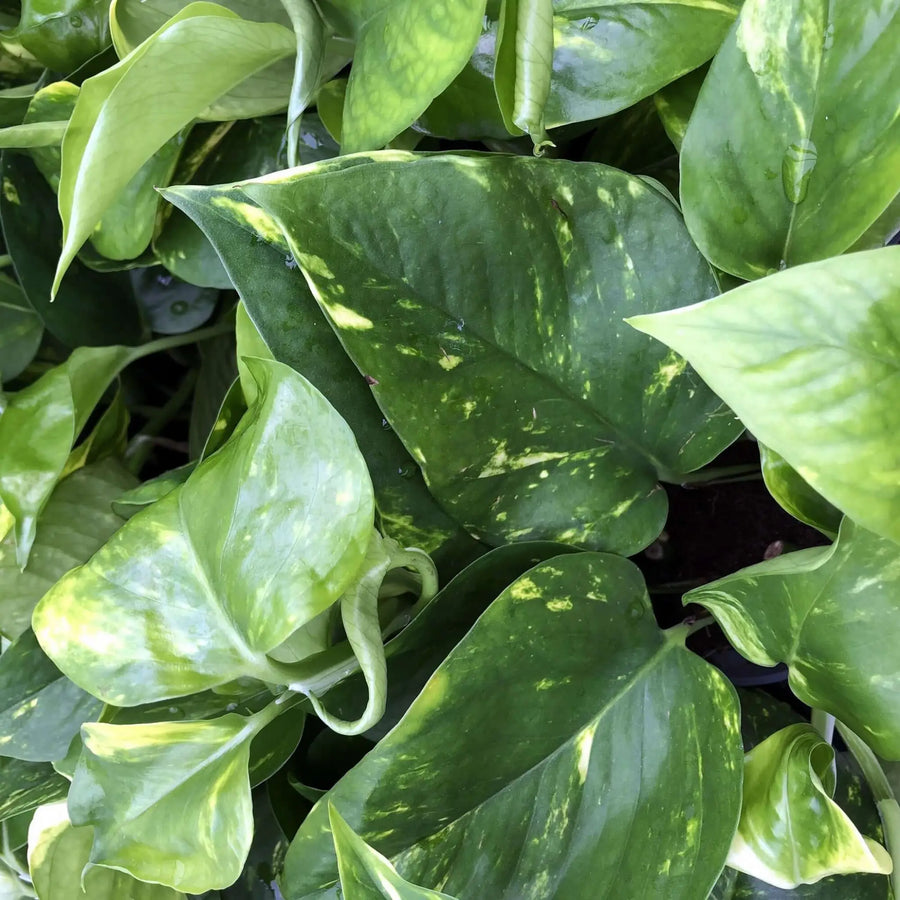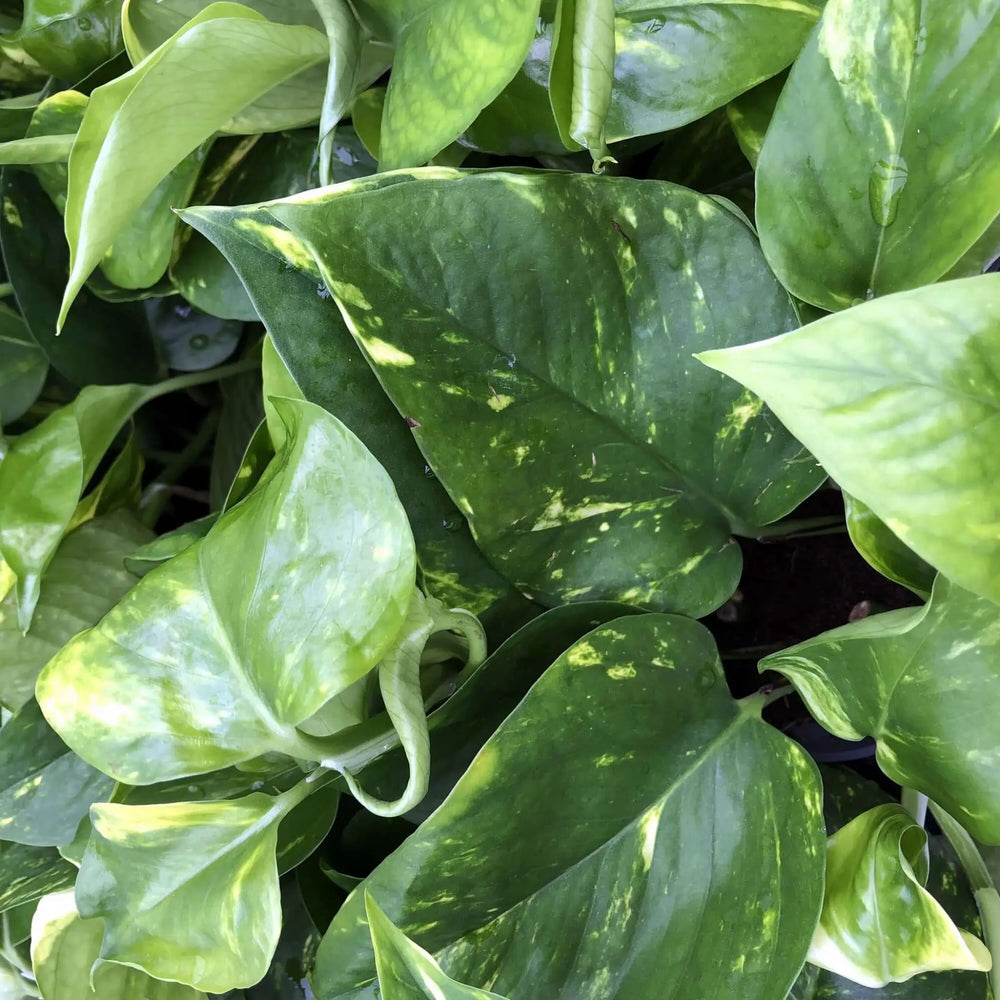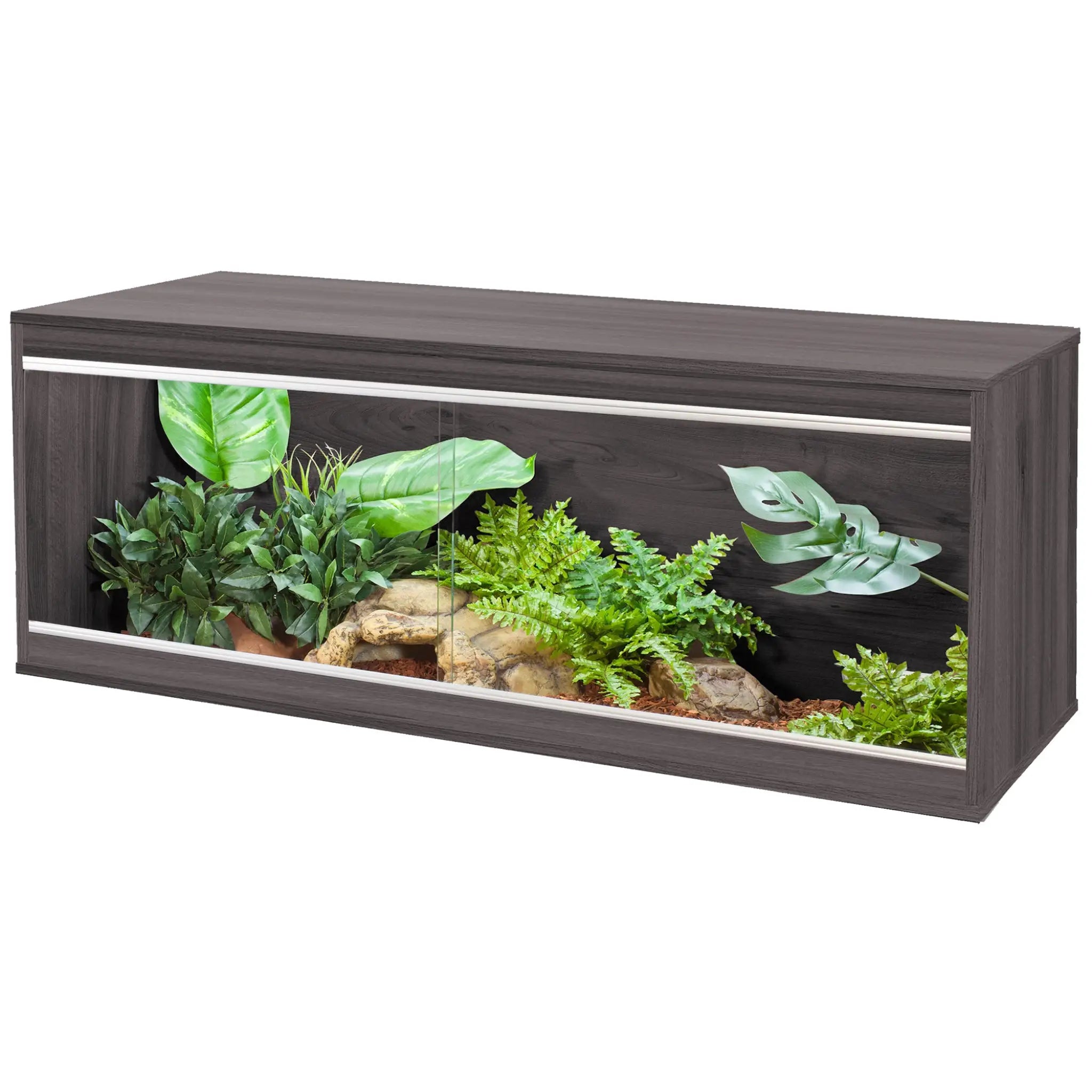
Best Reptile-Safe Plants: 10 Top Choices for a Healthy Habitat
When setting up a terrarium for your reptile, choosing the right plants is essential. Not all plants are safe for reptiles, but adding safe plants can enhance your pet's environment. Selecting non-toxic plants that thrive in your reptile’s habitat ensures their safety and improves their well-being. Options include ferns, bromeliads and succulents, which can add texture and colour to your vivarium.
Using live plants in your reptile’s enclosure can also help maintain humidity and provide hiding spots. These plants offer safe and naturalistic enhancements to your terrarium without compromising your pet’s health.
Terrariums with the right plant choices create a more enriching environment for reptiles. Whether you are looking for ground cover plants or air plants, integrating reptile-safe plants will make a significant difference. This not only makes the enclosure more attractive but also supports the health and comfort of your pet.
Choosing Safe Plants for Reptiles
When selecting plants for your reptile enclosure, it is vital to ensure they are safe and suitable for your pets. Consider the plant's toxicity, care requirements and compatibility with your reptile's environment.
Criteria for Reptile-Safe Plants
Choosing the right plants involves looking at several criteria:
-
Toxicity: Always select non-toxic plants. Safe options include the Boston Fern, prayer plant and dracaena. These plants are well-regarded for their non-toxic properties and are unlikely to harm reptiles if ingested.
-
Environmental Suitability: Make sure the plants can thrive in the same conditions as your reptile. For instance, desert plants like aloe vera and echeveria are ideal for arid environments, while ferns and bromeliads prefer more humid settings.
-
Care Requirements: Pick plants that match your ability to care for them. Low-maintenance plants like pothos, snake plant and chlorophytum comosum (spider plant) are easier to manage and keep healthy.
- Human and Pet Safety: Ensure the plants are safe for you and any other pets. Some plants, safe for reptiles, might not be ideal for other animals or humans (e.g. string of pearls).
Avoiding Toxic Plants for Reptiles
Avoiding toxic plants is critical. Some common toxic plants include:
-
Dieffenbachia: Known for its attractive foliage but toxic to reptiles and other pets.
-
Oleander: A popular ornamental plant, yet very toxic if ingested by reptiles or other animals.
- Croton: Colourful and appealing but should be avoided due to its toxic properties.
- Umbrella Plant (Schefflera actinophylla): Sometimes confused with the other Umbrella Plant (Eriogonum umbrellum), this species is generally not safe for reptiles, dogs or cats, if consumed.
Ensure any plant you decide to use is thoroughly checked for toxicity levels. Always consult with a veterinarian if unsure, as there can be a lot of confusion online about what is safe.
At Reptile Centre, we have over 20 years of experience with reptiles and amphibians, so feel free to check with us. Additionally, all our plants are raised without chemical fertilizers or pesticides, so they are safe to plant in enclosures.
10 Top Reptile-Safe Plants
Plants in reptile enclosures provide not only aesthetics but also essential benefits like humidity control and hiding spots for your pets. Below, you'll find some of the top reptile-safe plants you can incorporate into your reptile terrarium.
1. Bromeliads

Bromeliads are ideal for reptile terrariums, especially for tropical species. These plants store water in their leaf rosettes, allowing reptiles to drink directly from them.
Bromeliads can tolerate a range of light conditions and thrive in high humidity environments. They are epiphytes, meaning they can grow attached to other surfaces without soil, making them versatile for various setups. You'll find their bright colours and unique shapes enhance the natural look of your pet's home.
2. Sphagnum Moss

Sphagnum moss is excellent for maintaining humidity in reptile enclosures. It absorbs and retains water well, providing moisture that benefits both the plants and reptiles.
This moss is also useful as a ground cover plant, creating a soft substrate for reptiles to walk on. It's non-toxic and safe if ingested. Additionally, sphagnum moss helps keep the environment clean by adding to the natural cleaning processes of a bioactive terrarium.
3. Philodendrons

Philodendrons are robust and easy to care for, making them suitable for reptile terrariums. These plants can thrive in low to bright indirect light and adapt well to various indoor environments.
The heartleaf philodendron is non-toxic to reptiles and can survive occasional nibbles. With their large, lush leaves, they provide excellent hiding spots and help in maintaining humidity levels within the enclosure.
4. Spider Plants

Spider plants are hardy and adapt well to different light levels, from low to bright indirect light. They grow quickly and can handle frequent watering, making them suitable for reptile enclosures.
These plants are non-toxic, which means they are safe if your reptiles decide to nibble on them. Spider plants also help purify the air, contributing to a healthier environment for your pets.
5. Ferns

Ferns like the Boston fern are great choices for creating a natural habitat in your reptile terrarium. They require moderate to high humidity and indirect light, which can mimic the understorey of a forest.
Ferns provide excellent cover for reptiles, allowing them to hide and feel secure. They're generally safe and non-toxic, but it is always best to check specific species' toxicity to ensure they are suitable for your pets.
6. Aluminium Plants

Aluminium plants (Pilea cadierei), known for their striking silver-striped leaves, thrive in indirect light and moderate humidity. These plants are sturdy and adapt well to the conditions inside a reptile enclosure.
They provide good ground cover and add a unique aesthetic to the habitat. Their non-toxic nature ensures they are safe for reptiles, whether for decoration or occasional munching.
7. Nerve Plants

Nerve plants (Fittonia sp.) are small but visually striking with their colourful vein patterns. They thrive in high humidity and indirect light, making them perfect for tropical reptile enclosures.
These plants are non-toxic and safe for reptiles. Nerve plants grow low to the ground, providing excellent cover and hiding spots. Their unique appearance adds vibrancy and interest to your pet's environment.
8. Devil's Ivy

Devil's Ivy (Pothos) is a popular choice due to its hardiness and low-maintenance nature. It can grow in low light and adapt to varying humidity levels, making it versatile for different reptile environments.
The trailing vines can climb or drape, providing climbing opportunities for reptiles and helping to cover enclosure walls. It's important to note that while generally considered safe, some sources suggest monitoring for any digestive issues if ingested by your pet reptile.
9. Pink Polka Dot Plants

The pink polka dot plant is vibrant and easy to care for. Its colourful spotted leaves can brighten up any reptile enclosure. These plants thrive in high humidity and indirect light, making them suitable for moisture-loving species.
Pink polka dot plants offer excellent ground cover and add a splash of colour to the habitat. Regular misting will keep these plants healthy, making them a beautiful and practical addition to your enclosure.
10. Peperomia

Peperomia plants, such as the Emerald Ripple Peperomia (Peperomia caperata), are small, non-toxic and come in a variety of colours and shapes. They can thrive in different light conditions and help maintain good air quality.
These plants are also low-maintenance but add lots of visual appeal. Additionally, they can add a touch of elegance with their textured leaves, enhancing the look of your habitat.
Plant Care within Reptile Enclosures
Caring for plants in reptile enclosures helps create a natural environment for your reptile and ensures your plants thrive. Key aspects include providing the right lighting and maintaining plant health despite the presence of your pet.
Lighting Conditions and Plant Health
Plants need proper lighting to grow well. In a reptile terrarium, you must balance the needs of your plants with those of your reptile. Many plants, like the Boston fern, thrive in moderate light, while others, such as some succulents, need lots of light.
You might consider full-spectrum LED lights, which can be beneficial for both plants and reptiles. Always check each plant’s light requirements.
Not all plants can survive in low light or full sun conditions. Adequate lighting helps plants develop strong leaves and vibrant colours, which in turn helps create a beautiful and healthy habitat for your reptile.
Maintaining Plant Life amongst Reptiles
Reptiles can be curious creatures and might eat or damage plants. Choosing resilient plants, such as the heartleaf philodendron or devil’s ivy, can help.
These are non-toxic plants and can survive occasional nibbling. For lizards and other climbing animals, ensure plants are sturdy and well-rooted.
Watering is crucial. Keep the humidity at levels ideally suited to both plants and reptiles. Overwatering can lead to rot, while underwatering can dry out plants. Regularly check for pests and diseases. Bioactive terrariums with a clean-up crew of insects can help maintain a healthy environment.
Visit Reptile Centre to Buy Reptile-Safe Plants Today
For those looking to enrich their reptile enclosures, Reptile Centre offers a wide selection of live plants, air plants and edible plants. These plants are perfect for replicating a natural habitat, enhancing the quality of life for your reptiles.
Reptile Centre features around 3000 products, ensuring a variety of choices for all types of terrariums and vivariums. These reptile-safe plants are ideal for creating bioactive terrariums, supporting not only your reptile but the clean-up crew in your enclosure as well.
For more information, contact Reptile Centre today at sales@reptilecentre.com or 01604 753823. Whether you're setting up a new bioactive terrarium or adding to an existing one, we can assist you with any questions you may have.
